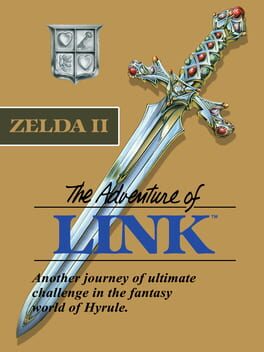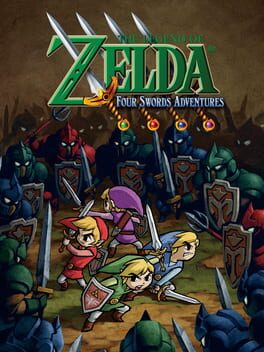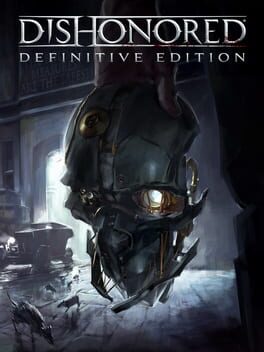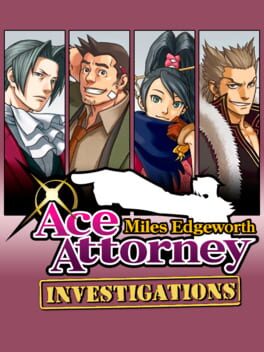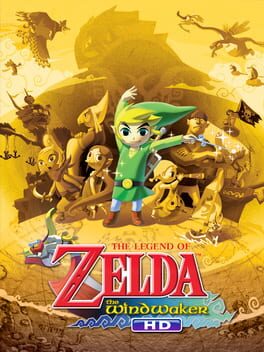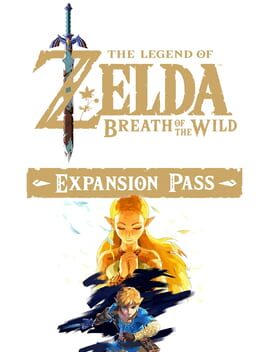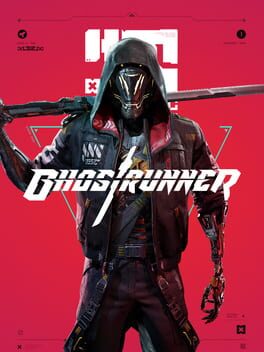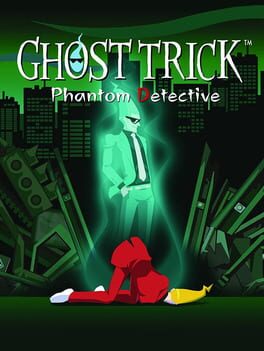1986
It's undeniable that this style of gameplay doesn't hold well to today's standards. The original The Legend of Zelda was meant to be played with unlimited amounts of patience and the curiosity and shared effort of a group of children. The design of the overworld would shine in that way, but nowadays it's almost impossible to emulate that feeling without spending an insane amount of hours on it.The hint system is (in)famous for its nonexistance, so the most common practice is to resort to a guide. It's true that the game loses part of its charm in that way, but it's still interesting to experience one of the most important pinnacles of gaming.
The focus on combat was probably not the best decision. If it seems a weird chose for a continuation of The Legend of Zelda, it's probably because Zelda II was at first meant to be the first installment in a new franchise. That doesn't mean the game was destined to fail from the beginning, but the questionable design choices undermine the result: the unfair difficulty, the roadblocks with almost or no hints (which are fewer than in The Legend of Zelda and that is definitely an improvement, but not a big enough one), the uninspired palace design (which end up feeling as long hallways full of enemies with no puzzle component involved), etc. Not a game for everyone.
After playing Four Swords, I honestly was expecting a far worse game than what Four Swords Adventures turned out to be. The collaboration component has been refined and the puzzles are genuinely enjoyable. The game was a lighthearted tone that fits with the multiplayer aspect, and the level based structure (similar to a typical Mario game) doesn't get repetitive.
At the same time, there's no lack of problems. First of all, the game is way too easy. The player would almost have to intentionally die to experience any kind of obstacle difficulty-wise. Secondly, the plot is a basic justification for an adventure and has 0 importance. Plus the level structure could be improved, saving some type of progress as the players advance so that is feels more organic.
Still, it's a game worth trying.
At the same time, there's no lack of problems. First of all, the game is way too easy. The player would almost have to intentionally die to experience any kind of obstacle difficulty-wise. Secondly, the plot is a basic justification for an adventure and has 0 importance. Plus the level structure could be improved, saving some type of progress as the players advance so that is feels more organic.
Still, it's a game worth trying.
I was in awe throughout the whole game. The setting, the level design and the stealth mechanics are extremely polished, and they achieve total immersion of the player right from the beginning sequence. But I specially loved the choice system. In Dishonored it truly feels that the morality of your character and his actions have an impact on the world. Not just in how others perceive him or how the city evolves, but also in the level design and the options the player has available.
Not that it's perfect. I admit that the second half of the game might feel a bit like filler, and the overall story is simplistic at most, with twists that were as clear as day. Nevertheless, I can and will gladly forgive its weak aspects, because the overall impression was excellent.
For me, this is what Assassin's Creed Syndicate should have been.
Not that it's perfect. I admit that the second half of the game might feel a bit like filler, and the overall story is simplistic at most, with twists that were as clear as day. Nevertheless, I can and will gladly forgive its weak aspects, because the overall impression was excellent.
For me, this is what Assassin's Creed Syndicate should have been.
I didn't dislike this game as much as the fanbase tends to do, but I can't deny that it's one of the weakest entries in the series that I've played so far.
Miles is the selling point of the game, and for me he works much better as a protagonist than Phoenix. It's always interesting to see his reactions and sarcastic remarks, whereas Phoenix usually acts more as a blank slate. Kay Faraday is a great new character, both in lore and in personality. She really works as a companion to Miles, acting as a counterpart and providing some freshness instead of always relying on the same old jokes on Gumshoe. However, the rest of the cast is not up to par. Most of them lack backstories to support their quirkiness and feel half-baked. Plus some jokes ended up getting really on my nerves (if I see that whip animation one more time, I swear...).
However, my biggest problem is with the gameplay. I definitely did not expect to see so few changes from the original trilogy, and everything seems recycled in a way that specially sticks out when you consider that the focus of the game should be investigating from the point of view of a prosecutor. I believe that this is reason enough to change the gameplay in a significant way and not just add a trivial logic system.
I know that I may sound too negative, but I did enjoy the game. Cases 2 and 4 are specially good and the gags are as on point as always. But don't play this entry unless you are prepared to pay the price just to see how Miles reacts to a Steel Samurai show.
Miles is the selling point of the game, and for me he works much better as a protagonist than Phoenix. It's always interesting to see his reactions and sarcastic remarks, whereas Phoenix usually acts more as a blank slate. Kay Faraday is a great new character, both in lore and in personality. She really works as a companion to Miles, acting as a counterpart and providing some freshness instead of always relying on the same old jokes on Gumshoe. However, the rest of the cast is not up to par. Most of them lack backstories to support their quirkiness and feel half-baked. Plus some jokes ended up getting really on my nerves (if I see that whip animation one more time, I swear...).
However, my biggest problem is with the gameplay. I definitely did not expect to see so few changes from the original trilogy, and everything seems recycled in a way that specially sticks out when you consider that the focus of the game should be investigating from the point of view of a prosecutor. I believe that this is reason enough to change the gameplay in a significant way and not just add a trivial logic system.
I know that I may sound too negative, but I did enjoy the game. Cases 2 and 4 are specially good and the gags are as on point as always. But don't play this entry unless you are prepared to pay the price just to see how Miles reacts to a Steel Samurai show.
This is one of the most creative games in the franchise. It revolutionized the visuals and exploration gameplay, making a step backwards from the much more story-focused Majora's Mask and Ocarina of Time to the very beginning of TLOZ, back in the NES days.
The game shines in these moments of complete liberty. When the player is free to explore, or even in the tiny puzzles where much more lateral thinking needs to be done than in your average Zelda, you can sense what the game developers were trying to achieve. Unfortunately, there's also a feeling of underdevelopment in many of those moments, and more. The sailing, the islands, the underwater parts, the dungeons, etc., have all some aspect or two that makes you think "clearly, they wanted to do this in more detail and just run out of development time".
I know that the sailing has always caused some debate among the fans. I don't think it was neither as boring as some put it, nor the perfect gameplay mechanic others claim it to be. I admit that I was sometimes bored while sailing, because there isn't much to do apart from watching Link go forward, but it was always exciting to find a new island or piece of the map and wonder what secrets it may hide.
On the other hand, the dungeons were a letdown, no excuses. The layout is way too linear (not that focusing on being linear is a mistake, but the problem here is that this linearity had me not even paying attention to the rooms I had been in and how they were related, because I always felt that I was walking on a very long corridor), and the combat is too easy (I never died in the game, and I can swear that I was particularly reckless on some parts once I realized how easy it was). A complete final dungeon would have been very much appreciated, too.
Instead, where I have found the true strength of this game is on the story, which is something that I was not expecting at all. WW made me care about Link's sister, want to sail the seas with Tetra, appreciate the silent King of Red Lions as a stern but reassuring companion, and, above all, respect the imposing presence of Ganondorf. This has become one of my favourites, if not my favourite, incarnation of the villain, and the final battle stands as one of the most epic in the franchise.
But yeah, play WW. And tell Nintendo to port it to Switch.
The game shines in these moments of complete liberty. When the player is free to explore, or even in the tiny puzzles where much more lateral thinking needs to be done than in your average Zelda, you can sense what the game developers were trying to achieve. Unfortunately, there's also a feeling of underdevelopment in many of those moments, and more. The sailing, the islands, the underwater parts, the dungeons, etc., have all some aspect or two that makes you think "clearly, they wanted to do this in more detail and just run out of development time".
I know that the sailing has always caused some debate among the fans. I don't think it was neither as boring as some put it, nor the perfect gameplay mechanic others claim it to be. I admit that I was sometimes bored while sailing, because there isn't much to do apart from watching Link go forward, but it was always exciting to find a new island or piece of the map and wonder what secrets it may hide.
On the other hand, the dungeons were a letdown, no excuses. The layout is way too linear (not that focusing on being linear is a mistake, but the problem here is that this linearity had me not even paying attention to the rooms I had been in and how they were related, because I always felt that I was walking on a very long corridor), and the combat is too easy (I never died in the game, and I can swear that I was particularly reckless on some parts once I realized how easy it was). A complete final dungeon would have been very much appreciated, too.
Instead, where I have found the true strength of this game is on the story, which is something that I was not expecting at all. WW made me care about Link's sister, want to sail the seas with Tetra, appreciate the silent King of Red Lions as a stern but reassuring companion, and, above all, respect the imposing presence of Ganondorf. This has become one of my favourites, if not my favourite, incarnation of the villain, and the final battle stands as one of the most epic in the franchise.
But yeah, play WW. And tell Nintendo to port it to Switch.
The DLCs add great quality of life additions to the game: the Travel Medallion, the ability to call your horse from any point of the map and the Korok mask are specially great additions for players in the late game and completionists.
I was somewhat disappointed by the Champions Ballad DLC. I expected more information and/or interaction with the champions and additions to the main story, but the new puzzles and surprise challenges compensated for it.
Anyways, this game is so good that I would be grateful for any excuse to spend more hours on it.
I was somewhat disappointed by the Champions Ballad DLC. I expected more information and/or interaction with the champions and additions to the main story, but the new puzzles and surprise challenges compensated for it.
Anyways, this game is so good that I would be grateful for any excuse to spend more hours on it.
2020
Ghostrunner is the cyberpunk cousin of Mirror's Edge, faster and with more mechanics than ever. It's challenging in a Celeste-like way: be ready to die a lot and polish your skills until you completely control the most particularly difficult levels.
Although that can break the experience for some, in my case it felt completely right. I enjoyed seeing my game improve and completing levels ever so smoothly. Not once did the challenge feel unfair.
The environment is another big plus. The music and setting are just on point to inmerse the player, and they constantly get refreshed so as to never get old.
The same cannot be said about the story, though. It's checks all the boxes in your bingo of cliches about the genre, and the plot twist is so predictable that it doesn't even feel like a plot twist. The fact that the story is narrated through dialogue that takes place while you play (and therefore, while you are much more worried with being precise at the challenge at hand than listening) does not help either.
And just to nitpick: there was no need to not include the option to save during a level and instead always make you restart at the very beginning. Duh.
If Ghostrunner picks your interest, try it. If you are willing to let some of its faults pass, you'll find a terrific game here.
Although that can break the experience for some, in my case it felt completely right. I enjoyed seeing my game improve and completing levels ever so smoothly. Not once did the challenge feel unfair.
The environment is another big plus. The music and setting are just on point to inmerse the player, and they constantly get refreshed so as to never get old.
The same cannot be said about the story, though. It's checks all the boxes in your bingo of cliches about the genre, and the plot twist is so predictable that it doesn't even feel like a plot twist. The fact that the story is narrated through dialogue that takes place while you play (and therefore, while you are much more worried with being precise at the challenge at hand than listening) does not help either.
And just to nitpick: there was no need to not include the option to save during a level and instead always make you restart at the very beginning. Duh.
If Ghostrunner picks your interest, try it. If you are willing to let some of its faults pass, you'll find a terrific game here.
In spite of how much I loved Breath of the Wild, Tears of the Kingdom ended up being quite a disappointment for me. The new mechanics sure are impressive and add a lot of depth to the gameplay, but I'm not the biggest fan of this type of DIY gameplay. I wasn't really interested on building the gigantic robots and contraptions that I was seeing online, and the new toys quickly became old. But hey! It's Zelda, right? There's much more to it than just the main mechanics!
Well, maybe not so much.
For starters, I was really hyped to explore the depths and the sky, but both quickly started to feel empty and repetitive. I love the atmosphere of the depths, but I just can't look forward to spend more time mining and walking around trees and mines that look exactly the same to the ones I've being seeing for hours and hours. Same with the sky: while I love the three or four islands that actually have special content in them (like the diving challenges, which I found particularly fun), the rest are just copy-pastes that end up feeling like a drag. Even getting from one to another starts to lose its joy once you find a system that works for you and realize that there's no variation in how you approach the "challenge".
The world is just as nice as it was in Breath of the Wild, but I couldn't help but think how weird it is for the game to try to sell a mysterious, gloomy tone with its story and, at the same time, be more goofy than ever. The new mechanics encourage you to continously try new stuff and be as creative as you can, which brings a light-hearted tone that doesn't fit well at all with the problems that Hyrule is actually facing.
Ok, but what about the changes that everyone was asking for? For example, we have temples back! Yeah! Fantastic! Now can I ask for some temples that can't be cheesed and provide a more varied goal than "go to the 4 points that appear on your map"? Extra points if they last more than 15 minutes (I'm looking at you, water temple).
I know that I sound extremely critic with the game, but I don't want to soften my problems with it. I will praise and love Breath of the Wild forever, but it's not perfect and there are clear improvements in Tears of the Kingdom. The story is now much more fleshed out (ignoring the disaster of how you can find the tears out of order) and there are many QoL features that add a lot to the experience. But Tears of the Kingdom has too many incoherence problems to overlook, too many issues that seem a rushed decision due to the vast amount of time that must have been dedicated to polishing mechanics. Mechanics that, sadly, are not so satisfying to some of the players.
Well, maybe not so much.
For starters, I was really hyped to explore the depths and the sky, but both quickly started to feel empty and repetitive. I love the atmosphere of the depths, but I just can't look forward to spend more time mining and walking around trees and mines that look exactly the same to the ones I've being seeing for hours and hours. Same with the sky: while I love the three or four islands that actually have special content in them (like the diving challenges, which I found particularly fun), the rest are just copy-pastes that end up feeling like a drag. Even getting from one to another starts to lose its joy once you find a system that works for you and realize that there's no variation in how you approach the "challenge".
The world is just as nice as it was in Breath of the Wild, but I couldn't help but think how weird it is for the game to try to sell a mysterious, gloomy tone with its story and, at the same time, be more goofy than ever. The new mechanics encourage you to continously try new stuff and be as creative as you can, which brings a light-hearted tone that doesn't fit well at all with the problems that Hyrule is actually facing.
Ok, but what about the changes that everyone was asking for? For example, we have temples back! Yeah! Fantastic! Now can I ask for some temples that can't be cheesed and provide a more varied goal than "go to the 4 points that appear on your map"? Extra points if they last more than 15 minutes (I'm looking at you, water temple).
I know that I sound extremely critic with the game, but I don't want to soften my problems with it. I will praise and love Breath of the Wild forever, but it's not perfect and there are clear improvements in Tears of the Kingdom. The story is now much more fleshed out (ignoring the disaster of how you can find the tears out of order) and there are many QoL features that add a lot to the experience. But Tears of the Kingdom has too many incoherence problems to overlook, too many issues that seem a rushed decision due to the vast amount of time that must have been dedicated to polishing mechanics. Mechanics that, sadly, are not so satisfying to some of the players.
What a charming hidden gem. Its peculiar, well-constructed story and characters offer a wild ride from beginning to end. It has a very characteristic humor, always present to alleviate what are actually pretty dark and mature themes.
The gameplay is also very unique, but it is probably where the game falls a bit short. In the final third, the lack of new mechanics make it start to feel a bit repetitive, and all the puzzles could gain from being less straightforward.
Even then, this is still a fantastic game. If you're remotely interested, give it a try.
PS: I know there's a Switch version, but I do think that the animations of the original leave a bigger impression and that the remake simplifies them too much. Apart from a couple of new scenes, there are no other major changes, so I would recommend the DS version.
The gameplay is also very unique, but it is probably where the game falls a bit short. In the final third, the lack of new mechanics make it start to feel a bit repetitive, and all the puzzles could gain from being less straightforward.
Even then, this is still a fantastic game. If you're remotely interested, give it a try.
PS: I know there's a Switch version, but I do think that the animations of the original leave a bigger impression and that the remake simplifies them too much. Apart from a couple of new scenes, there are no other major changes, so I would recommend the DS version.
2012

